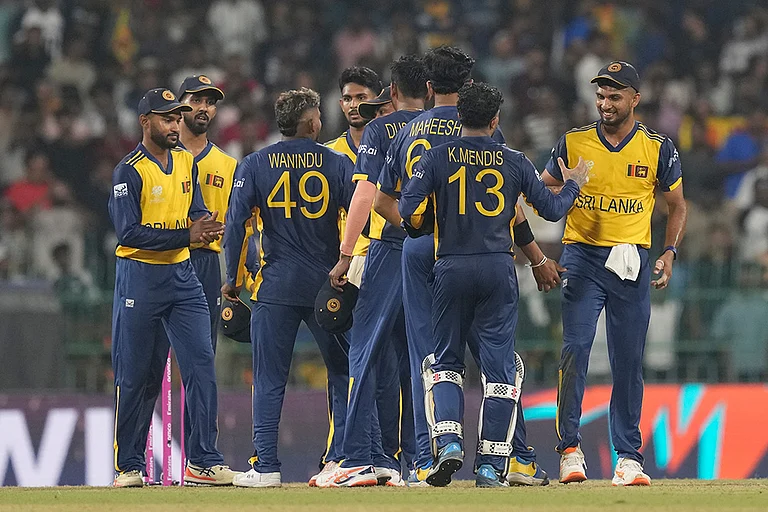"The poll outcome shows that the common man judges a government more by its economic policies than its ideology," he says.
The BJP’s Hindutva agenda has a parallel in Nawaz Sharif’s Shariat bill – critics caution him against enforcing it on people who feel religion is too important an issue to entrust the state with. "The peoples of Pakistan and India can safeguard their faiths so long as their governments don’t interfere with their social and moral values and do not discriminate against them on that basis," says Idris.
For Pakistani bureaucrats already engaged in dialogue with their Indian counterparts on several issues, though, it was business as usual as both sides continued meetings in Islamabad , this time on the Lahore-New Delhi bus service.
But at least one senior foreign office official isn’t too complacent. "Weak governments in Delhi suit no one. There’s a high risk that (Prime Minister Atal Behari) Vajpayee might go for adventurism in Kashmir to divert attention. Remember, we can never rule out a war between the two states. Though this defeat of the BJP will not affect ongoing talks, there is a likelihood that the Indians might adopt a hard line," he says.
A White House official takes a similar line. "Our ability to get the BJP to focus on issues such as non-proliferation – limited at best – is going to be even more constrained now," he says. "I’m afraid that nobody in the BJP is going to take decisive action for fear of any adverse impact it might have on the next election. In the short term the government is going to be even more nervous and skittish than before."
The most unequivocal views came from London, where the consensus is that BJP leaders will be hamstrung in negotiations. Vajpayee’s special envoy Brajesh Mishra is to visit the UK within the next fortnight for talks on Kashmir and the nuclear issue. With the poll results being read as a signal that the BJP has lost the support of the people it represents, his mission will be the less effective, officials admit. There’s also an element of delight in Whitehall. "The BJP is seen as intransigent, and its weakening will be welcome to several governments in the West, including this one," says a foreign office official.
The Congress also features in the outlook of investment managers in the UK. "The best case scenario we see for India," says the manager with a US fund, "is to see Manmohan Singh as prime minister of finance minister of a strong single-party government." The outcome of the state polls has managers of India funds optimistic about such possibilities, but with little change on the horizon yet, this is not affecting decisions. "Most investors in India are looking to long-term gains, and decisions will not be driven by this kind of political change," the manager says.
That means little immediate change is expected on the broad economic front. But again there are worrying possibilities. While most feel and accept that India is in for a fairly long stretch of unstable coalitions, it is also perceived that no party will push the reforms process fast enough whatever their public statements.
What has helped the Indian economy’s cause is the fact that among emerging markets, it was the only one to hold steady through this year’s turbulence. It is these indicators that interest the foreign investor more than the name of the party in power, or even one that seems to be losing it.
But there are apprehensions that the elections results could stall the insurance bill expected to be tabled soon. Insurance companies are looking for quick changes now. And Yashwant Sinha’s assurances that the bill will be presented in this session are being considered like everything else – with caution.
Ludwina A. Joseph in Washington and Mariana Babbar in Islamabad with Sanjay Suri in London

























